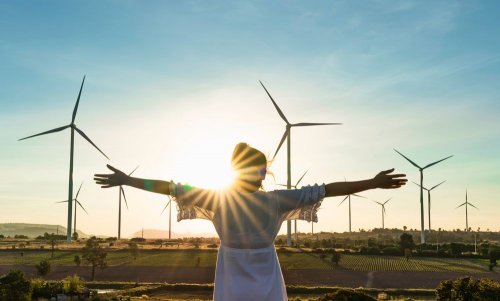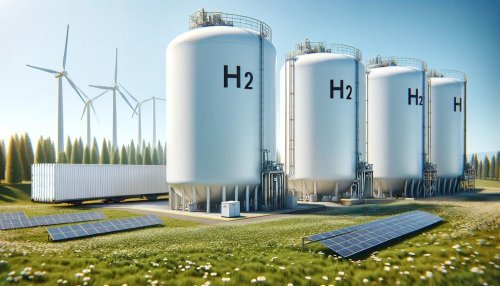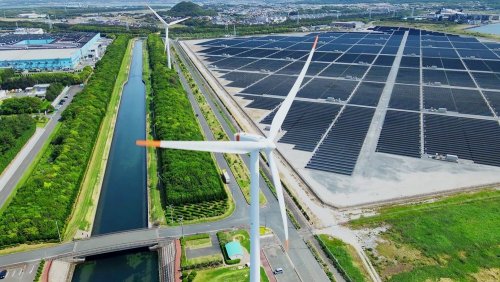Leading organizations of the EU's renewable energy sector have called on the European Commission, the European Parliament and member states to implement 10 steps to accelerate the decarbonisation of the heating sector.
Heating accounts for about half of the energy demand in the block, 70% of which comes from fossil fuels, the "Bioenergy Association of Ukraine" reports on Facebook.
The article noted that the EU planned a gradual phase-out of fossil fuels thanks to the transition to renewable energy, the use of waste heat and energy efficiency measures. However, Russia's full-scale invasion of Ukraine has changed the plan and the heating and cooling sector needs fast and decisive changes.
"The current energy security crisis is a heating crisis," the authors emphasized.
Experts believe that the REPowerEU plan and the Fitfor55 package are not enough to achieve climate neutrality and energy independence.
They offer:
- Develop a strategy for the development of the heating and cooling sector, consistent with climate legislation and energy security principles;
Experts believe that the European Heating and Cooling Strategy 2016 does not meet the goals of the EU, the green climate agreement and the REPowerEU plan.
They called for the introduction of an EU financial risk reduction scheme, as well as other financing and regulatory instruments for the use of renewable and waste heat sources, efficient heating technologies, in particular heat pumps.
In addition, it is worth aligning the changes with existing EU legislation, as well as promoting a clear long-term vision among Member States, local authorities and stakeholders.
- Expand the construction of communications to connect networks of renewable heat supply and solid waste in cities;
For this, experts suggest speeding up building repairs and implementing energy-efficient measures to reduce energy consumption in the EU.
It is also necessary to decarbonize demand in the heating and cooling sector. This involves connecting buildings to locally available and sustainable sources of renewable heat (geothermal, solar, bioenergy), waste heat, renewable electricity and high-efficiency heating systems (eg heat pumps and combined heat and power).
- Introduce mandatory thermal planning at the local level;
"Mandatory thermal planning at the community level is needed to assess the potential and make the best use of local energy sources, reducing dependence on energy imports. This also involves the carrying out of repair works and the introduction of the latest technologies," the article says.
- Provide facilities with appropriate qualified personnel;
The authors explained that the transition to renewable heat supply requires a sufficiently skilled workforce at all levels of supply, maintenance and repair of the network. Incentives for the retraining of energy installers and revision of the legislation on professional education with the introduction of new specialties are also needed.
- Rethink financing approaches for sustainable district heating;
The article concludes that it is necessary to take into account the growth, nature, and state of transitional systems of centralized heat supply from fossil fuels to fully sustainable supply.
- Stop subsidizing fossil fuels and redirect these funds to efficient renewable and sustainable technologies;
"Boilers that use only fossil fuels must be replaced or upgraded to use alternative energy sources. It is appropriate to create investment funds for the introduction of sustainable solutions for heating and cooling both for centralized systems and for individual heating," the authors noted.
- Create equal conditions for all heat market participants;
The existing fossil fuel penalty system covers only large installations, leaving out of its scope most small producers of dirty heat for individual heating systems at EU level.
In addition, the emissions trading system creates a competitive gap that is harmful and undermines the objectives of the Green Deal. And the decarbonization of heat supply should take place with a primary focus on the needs of consumers and taking into account local characteristics.
- Stimulate the use of sustainable waste heat;
The article noted that industrial waste heat can provide more than 25% of future demand in the heating and cooling sector.
Member States should promote the use of such heat for industry, buildings with district heating and cooling and ensure cooperation between all participants in the process.
- Accelerate the deployment of renewable energy: heat and electricity supply;
The authors explained that the decarbonization of heat supply is of key importance for climate neutrality. Therefore, an appropriate regulatory framework and financing instruments adapted to the different available heat sources and such technologies (geothermal, solar, solar PV, bioenergy and heat pumps) must be created.
It is necessary to introduce special risk reduction tools, investment assistance, mandatory heat planning, acceleration of permit procedures, etc.
- Implement a comprehensive approach to decarbonization policy;
"We are talking about a holistic ecological approach that goes beyond the reduction of energy demand. It is worth considering the improvement of energy efficiency, modernization of buildings, construction of new sustainable energy sources, etc. It is important to ensure an equal approach between local and national solutions," the material noted.
Earlier, EcoPolitic wrote, that in Europe, all municipalities with a population of more than 50 thousand inhabitants have develop roadmaps for decarbonization of heating systems and cooling, in accordance with the draft EU legislation.
As EcoPolitic previously reported, the European Commission approved the plan developed by the German government program of centralized heating for €2.98 billion, which involves the use of RES, waste heat and decarbonization of existing networks.





